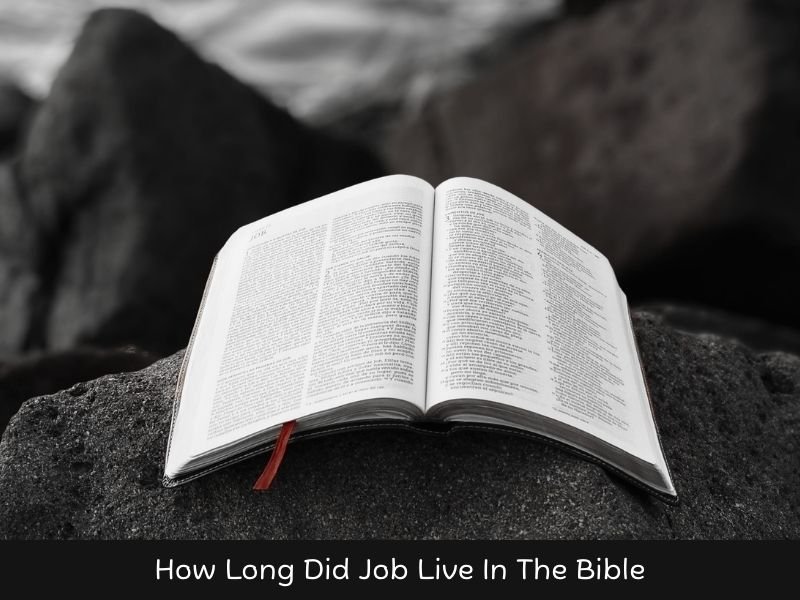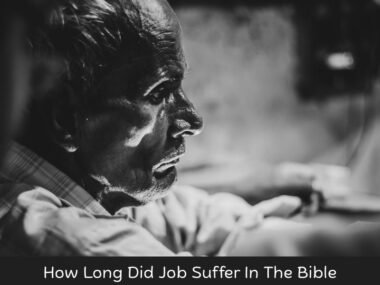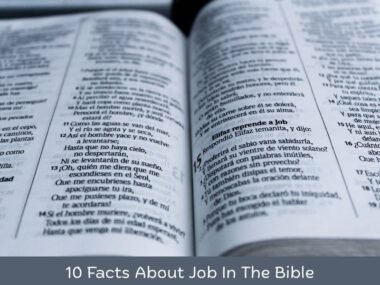The question “How long did Job live in the Bible?” has captured the curiosity of scholars, theologians, and devout readers of Scripture. Job’s narrative, nestled within the poetic and wisdom literature of the Old Testament, transcends mere biography; it serves as a profound exploration of human suffering, divine justice, and the mysterious interplay between earthly trials and heavenly purposes. As one of the Bible’s most enigmatic and revered figures, Job emerges not only as a symbol of resilience but also as a theological anchor in understanding God’s sovereignty and the endurance of faith under extreme affliction.
The Book of Job recounts the harrowing trials he endured—loss of wealth, the death of his children, and agonising physical affliction—yet highlights his unwavering commitment to righteousness. This unwavering integrity, in the face of suffering, is ultimately met with divine restoration. Job’s life is richly layered with spiritual depth and historical intrigue, culminating in a remarkable lifespan that many interpret as a divine reward for his perseverance and steadfastness. The record of his years becomes more than a numerical detail; it transforms into a testament of divine compensation and enduring hope.
This article offers an in-depth examination of Job’s life span, addressing the pivotal question: How long did Job live in the Bible? Drawing from scriptural accounts, ancient translations, historical context, and scholarly commentary, we aim to provide a comprehensive and enlightening analysis. We will explore how Job’s age relates to the patriarchal tradition, what various biblical sources suggest about his longevity, and what his extended life signifies within the grand narrative of Scripture.
Understanding Job’s Lifespan According to Scripture
The primary source for Job’s lifespan is found in Job 42:16, which states:
“After this, Job lived 140 years and saw his children and their children to the fourth generation.”
This verse—Job 42:16—indicates that after enduring his profound and multifaceted trials, Job was granted an additional 140 years of life. During this extended period of divine favour and restoration, he witnessed the flourishing of his lineage, beholding his children and their descendants unto the fourth generation. This remarkable post-trial lifespan is not only a testament to Job’s personal endurance and steadfast faith but also serves as a symbolic reflection of God’s restorative justice and providential mercy. However, while the passage is explicit about the years Job lived following his tribulations, it remains silent on a crucial point: his precise age at the onset of these sufferings.
The absence of this detail has led to a diversity of scholarly interpretations and theological conjectures regarding Job’s total lifespan. Some infer, based on cultural context and circumstantial evidence, that Job may have been an elderly man—perhaps in his seventies—when his trials began, while others propose a younger age, arguing from the vigor and productivity implied in his earlier years. The ambiguity surrounding his age at the time of affliction invites a deeper reflection on the broader narrative themes—resilience, divine timing, and restoration—while also highlighting the challenges in constructing an exact chronology within ancient biblical texts.
Estimating Job’s Age at the Time of His Trials
While the Bible does not explicitly disclose Job’s precise age at the time his trials began, many scholars and biblical historians have formulated educated estimates based on textual and cultural context. Given that Job was already the father of ten grown children, possessed vast wealth, managed extensive livestock holdings, and was renowned as “the greatest of all the people of the East” (Job 1:3), it is plausible to surmise that he was a well-established and mature man at the outset of his afflictions.
Some scholars suggest that Job may have been approximately 70 years old when his sufferings commenced, a figure consistent with patriarchal lifespans and societal norms of the era. When the 140 additional years granted to him after his restoration are factored in—according to Job 42:16—this would place his total lifespan at around 210 years. Such a lifespan aligns with the longevity characteristic of other early biblical figures and reflects divine favour and completeness.
Variations in Ancient Texts: The Septuagint Perspective
The Septuagint, an ancient and highly respected Greek translation of the Hebrew Scriptures, provides a divergent account of Job’s lifespan that differs notably from the Masoretic Text. According to certain versions of the Septuagint, Job lived for an additional 170 years following his period of intense suffering and divine restoration, ultimately dying at the venerable age of 240. This expanded lifespan places him more squarely within the range of the early patriarchs, such as Abraham and Isaac, whose lives also extended well beyond two centuries.
Such a significant chronological detail underscores the theological and cultural perspectives preserved within the Greek tradition and illustrates the textual variations that exist across different manuscript lineages. The Septuagint’s rendering not only emphasizes Job’s longevity as a reward for his faithfulness but also serves to highlight the ancient worldview that equated extended life with divine favor, righteousness, and legacy. It remains a key element in comparative biblical scholarship and interpretation.
Comparing Job’s Lifespan with Other Biblical Figures
Job’s lifespan, whether 210 or 240 years, places him among the long-lived patriarchs of the Bible.
For comparison:
-
Abraham lived 175 years.
-
Isaac lived 180 years.
-
Jacob lived 147 years.
These comparisons suggest that Job’s life spanned a significant period, consistent with the extended lifespans characteristic of early biblical figures.
Rabbinic and Historical Perspectives on Job’s Era
The precise timing of Job’s life continues to be a subject of considerable debate among biblical scholars, theologians, and various religious traditions. The ambiguity of historical markers within the text allows for multiple interpretations, each grounded in distinct theological or literary frameworks. Some rabbinic sources, for instance, attribute the authorship of the Book of Job to Moses, thereby suggesting that Job lived either during or before the time of the Exodus, perhaps as a contemporary of early Hebrew patriarchs.
Others propose that Job’s story predates even Abraham, situating him firmly within the patriarchal era, a time characterised by nomadic lifestyles, clan-based societies, and oral traditions. These varied perspectives underscore the ancient and foundational nature of Job’s narrative within the broader biblical canon. Regardless of the precise historical setting, Job’s story transcends time, offering timeless insights into the human condition, divine justice, and the enduring power of faith amid suffering.
Theological Implications of Job’s Long Life
Job’s extended lifespan stands as a powerful testament to both his unwavering faithfulness and the boundless restorative power of God. After enduring unimaginable depths of suffering—marked by the loss of his children, wealth, health, and social standing—Job maintained a steadfast devotion to God, refusing to curse the Divine even in his darkest hours. In response to this enduring fidelity, Scripture records that his life was not merely restored but abundantly blessed beyond its former state.
He was granted more children, greater prosperity, and, most notably, a prolonged life in which to enjoy these blessings. Job’s longevity serves as a symbol of divine approval, embodying the spiritual principle that righteousness, even when tested by fire, yields profound reward. His narrative powerfully reinforces the overarching biblical theme that perseverance in faith, especially amidst trial, leads to ultimate vindication, restoration, and lasting blessing—an enduring message of hope for believers across generations.
Conclusion
Far more than a matter of numerical precision, Job’s lifespan invites a deeper exploration into the nature of divine-human interaction, the enduring power of faith, and the profound mysteries of suffering and reward. Whether one aligns with the Masoretic Text’s declaration that Job lived an additional 140 years following his afflictions or embraces the Septuagint’s more expansive assertion of a 240-year total lifespan, the essence remains unchanged—Job’s longevity symbolises divine restoration, approval, and unyielding grace.
His life, etched into the canon of sacred Scripture, continues to resonate as a paragon of perseverance under duress and trust in divine providence. In a world still marked by suffering and uncertainty, Job’s narrative provides a timeless model of how unwavering faith can transcend the darkest trials and ultimately lead to renewal and blessing. The richness of his story—framed not merely by what he endured, but also by how he was restored—involves believers and scholars alike to reflect on the character of God and the hope embedded within the human experience.
Thus, “How long did Job live in the Bible?” is more than an inquiry into years; it is an entry point into one of Scripture’s most profound and enduring testimonies. Through Job’s extended years and the legacy he left, we are reminded that faithfulness amidst suffering does not go unnoticed by heaven—and that in God’s perfect timing, restoration often exceeds imagination.







